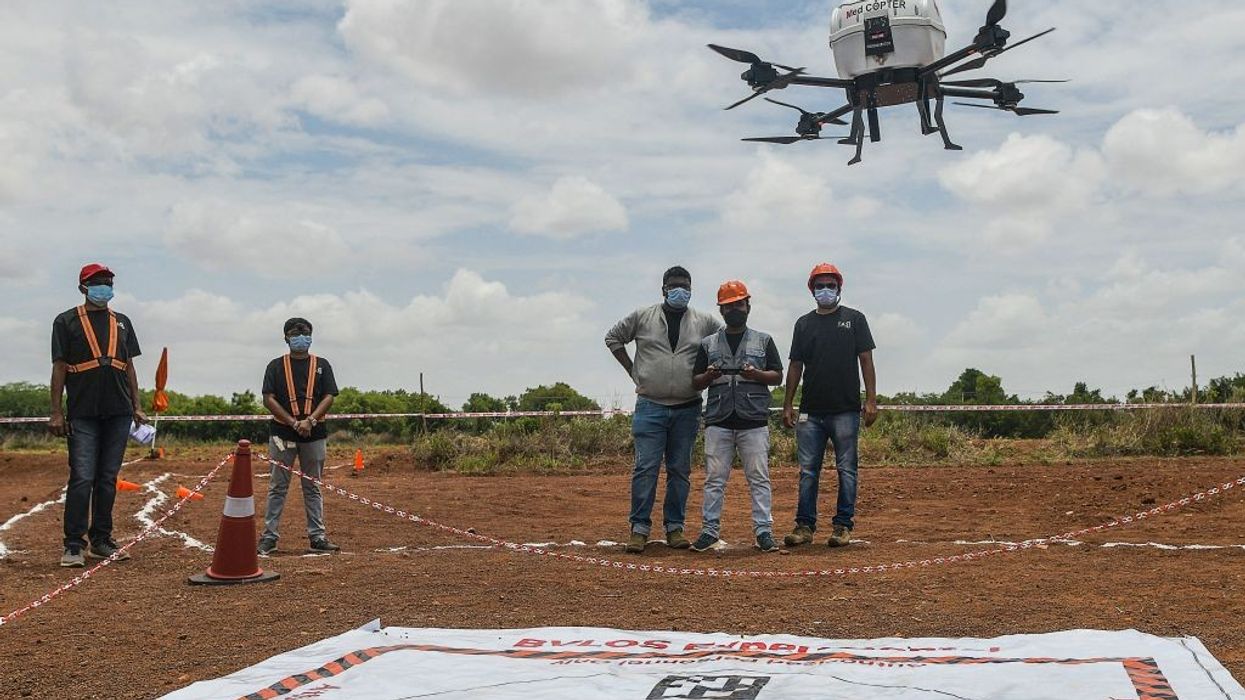AN aviation firm has carried out the first tests in India of longer-range drone deliveries, as hopes grow that they could deliver medicines as well as Covid-19 vaccines to remote areas.
Greater use of drones could be a game-changer for medical services in the South Asian nation's hard-to-reach rural areas where healthcare is limited and roads often poor, experts say.
Throttle Aerospace Systems is among 20 organisations granted permits by the government since May to conduct experimental flights beyond the current limit of 450 metres (1,475 feet).
Two drones -- one that can carry up to one kilogramme (2.2 pounds) for 20 kilometres (12 miles) or nearly an hour, and another that can lift two kilos for 15 kilometres -- were tested on Monday (21) in the southern state of Karnataka.
"Medicines was the payload here and... 2.5 kilometres were covered in seven minutes and it delivered the medicines at the designated point and the drone returned," said Throttle's co-founder, Sebastian Anto.
The government this month also invited bids from drone operators to help set up a pilot project for the delivery of medical supplies as it seeks to bolster its faltering coronavirus vaccination drive.
The closing date for expressions of interest was Tuesday (22), although the government has yet to announce when such projects would become operational.
The epidemiology chief of the Indian Council of Medical Research, Samiran Panda, told The Hindu daily newspaper that the technology could help vaccinate priority groups in hard-to-reach places.
"We need smart vaccination instead of mass vaccination to stem an epidemic," said Panda.
India lags behind many other nations when it comes to drones -- or Unmanned Aerial Vehicles -- both in terms of their uses and the regulatory framework.
Under current regulations, they have to be flown in full view, or within 450 metres, of their operators on the ground.
India, home to 1.3 billion people spread across some 3.2 million square kilometres (1.15 million square miles), is the world's seventh-largest country by land mass.
"Drone technology would have a huge impact in those areas where emergency medicines and vaccines could be supplied," said Vipul Singh, co-founder of lobby group the Drone Federation of India.
"Where it takes a few hours to travel 20-30 kilometres by road, whereas a drone can actually travel that distance in 10 to 15 minutes," said Singh, also the co-founder of Bangalore-based Aarav Unmanned Systems.





